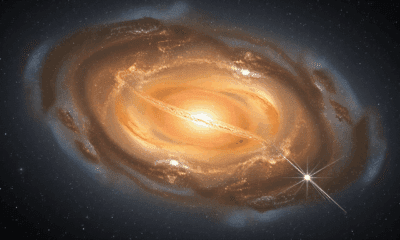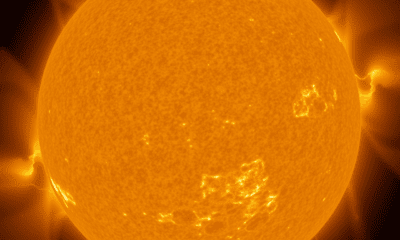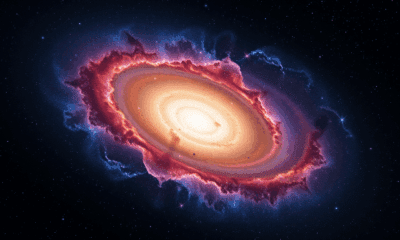

Imagine printing your Martian home from dust, sunlight, and a bit of biology. A new synthetic lichen system uses fungi and bacteria to grow building materials...


DNA from a skull found at Newgrange once sparked theories of a royal incestuous elite in ancient Ireland, but new research reveals no signs of such...


Scientists are peering into the universe's mysterious Cosmic Dawn using the faint whispers of hydrogen radio waves emitted over 13 billion years ago. These signals, particularly...


A stunning breakthrough in solar physics reveals ultra-fine magnetic structures on the Sun's surface, thanks to the NSF's Inouye Solar Telescope. Researchers captured never-before-seen bright and...


Astronomers have uncovered a colossal, searing-hot filament of gas linking four galaxy clusters in the Shapley Supercluster a discovery that could finally solve the mystery of...


Astronomers have produced the most detailed map yet of the Sculptor Galaxy, revealing hundreds of previously unseen celestial features in stunning color and resolution. By combining...


When Apollo astronauts stumbled across shimmering orange beads on the moon, they had no idea they were gazing at ancient relics of violent volcanic activity. These...


At the heart of our galaxy lies a cosmic puzzle: although the Galactic Center is packed with star-making material, massive stars form there surprisingly slowly. Using...


Astronomers using ALMA have uncovered how gas and dust in planet-forming disks evolve separately an insight that reshapes our understanding of how different types of planets...


Surveying nearby galaxies in the process of merging with other galaxies, astronomers have identified massive, dense star factories, unlike any found in the Milky Way. The...